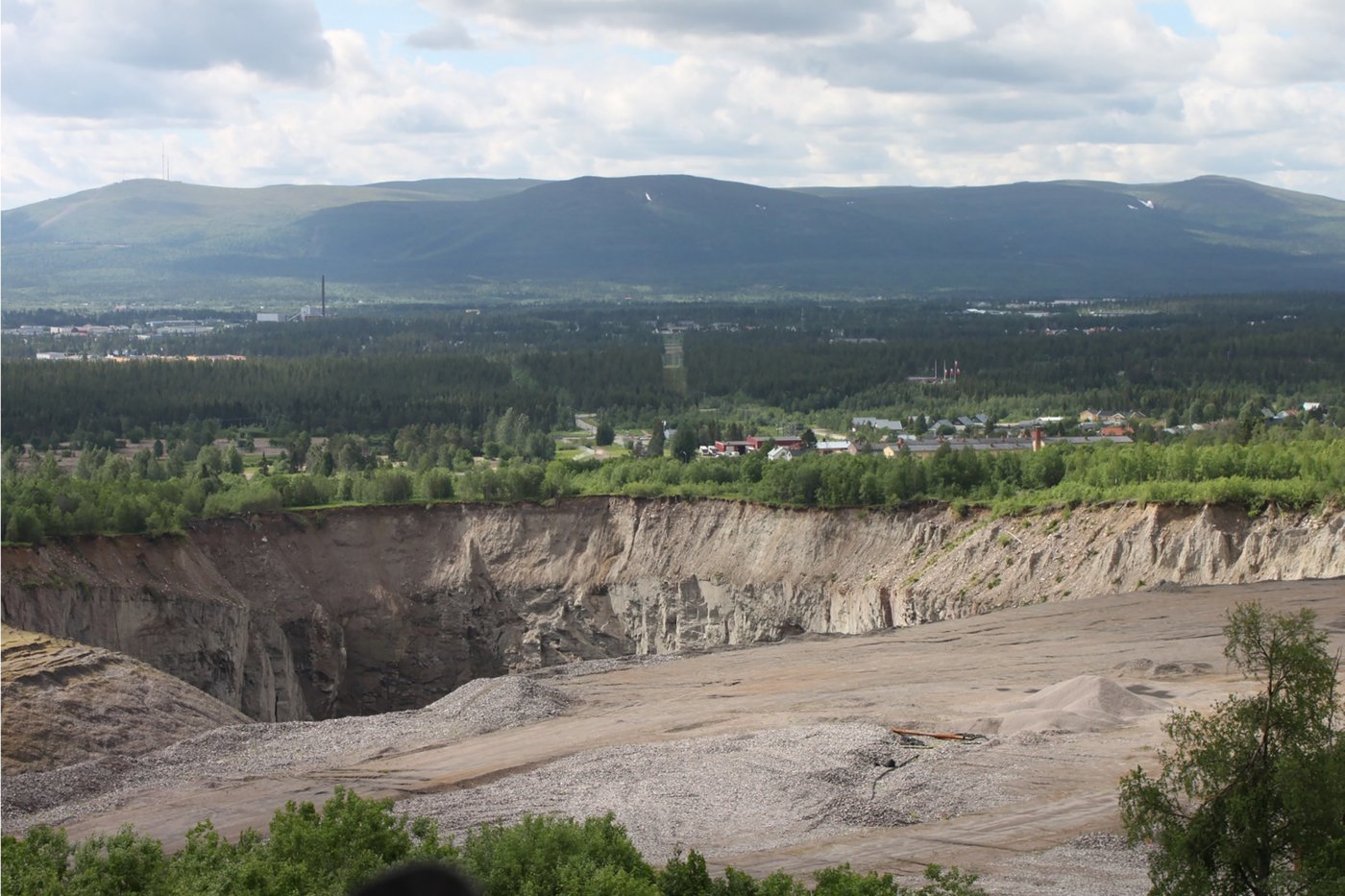Practices of Decolonizing the Mining Landscape
Lecture-Workshop von Lis-Mari Gurák Hjortfors und Karin Reisinger im Rahmen des Symposiums Healing Feminism.
Lis-Mari Gurák Hjortfors, Sami researcher in ethnology, discusses the importance of the Sami taking care of their own cultural heritage, and their rights as indigenous people. As part of an indigenous people, she has lived in this area long before the place became a mining community. Váhtjer/Gällivare municipality – with the three towns of Gällivare, Malmberget, and Koskullskulle – is a mining community, with a harsh climate for the Sami. A return to indigenous cultural heritage provides a means of escaping colonization for the Sami identity, reclaiming a cultural heritage as part of the work of reconciliation, and strengthening a feeling of belonging. Gurák Hjortfors brings the place to life, reconnecting it to the cultural and natural environment by conveying knowledge and providing counter-images through activism – fighting the threats which make Sami culture invisible. In her professional role, she teaches the public about Sami culture, and Sami presence in the area, through presentations, talks, articles, poetry, exhibitions, and other pedagogical methods.
Areas such as Gällivare provide building material for the whole of Europe, through the extraction of iron ore. Researcher and architect Karin Reisinger is interested in architecture’s role in colonialism, firstly, through building with materials which are mined, causing extractive violence, and secondly, providing the infrastructure needed to enable mining. Responding to Gurák Hjortfors’ claims, Reisinger applies anti-colonial practices in research, presentations, publications, talks, collages, and exhibitions, often emerging together with situated local spatial practitioners of mining areas.
Together, Gurák Hjortfors and Reisinger started collecting practices of decolonising the mining landscape with different audiences, based in discussing their own experiences and reflections on how practices can complement each other and have the potential to restore healthy relationships to places and environments beyond extraction and colonialism. For the first time, they will extend the collection outside of Sweden.
Lis-Mari Gurák Hjortfors, Sami ethnologist, is a PhD student and researcher at Sami Studies at Umeå University, Umeå/Várdduo – Centre for Sámi research. She is interested in Sami related perspectives.
Karin Reisinger, architect, lecturer at the Academy of Fine Arts Vienna and senior scientist at University of Applied Arts Vienna. She has been working with two mining areas of iron ore extraction; Malmberget / Gällivare in Sápmi, Northern Sweden (since 2017), and Eisenerz in Styria, Austria (since 2020).
